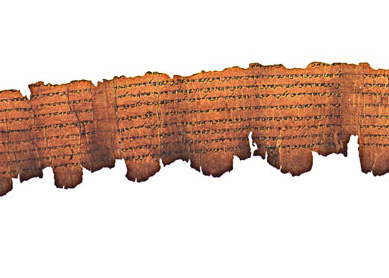The Bible is often referred to as the “Holy Bible.” But what does it mean for a person rather than a book to “be holy”? Is it an action or a state of mind? The book of Leviticus offers some insight into what being holy entails, explaining that it requires consistent action on the part of Israel.
Scholars call
The Israelites were living in a context where they might encounter Egyptians or Canaanites who engaged in what the authors of Leviticus considered “ungodly” practices, including idolatry and immoral sexual behavior. Leviticus therefore requires the Israelites to adopt standards of behavior to separate themselves from their neighbors and maintain the purity of the land given to them by the God of Israel. The ultimate goal of the sexual purity laws, and the Holiness Code in general, was to motivate the Israelites to be holy, like God—what later commentators call imitatio Dei, “imitating God” (see
In Lev 18, the Israelites are told to perform actions that “set apart” the clean from the unclean; by doing so the Israelites will maintain a degree of purity and thus be “holy.” “Clean” and “holy” are related but not necessarily the same. To be “clean” refers not to physical cleanliness but to a state achieved through ritual that dictates fitness for worship and inclusion, namely, “holiness.” And so begins the recitation of sexual purity laws, regimenting the behavior of the Israelites (and also revealing prurient ongoing practices of their foreign neighbors).
The sexual purity laws begin by listing sexual prohibitions involving family members. The laws also include two prohibitions against sex between two men (
It is also worth considering the broader scriptural context.
The placement of such sexual purity laws alongside a more universal ethic of love might seem puzzling. But despite the superficial incongruity, the Levitical laws were meant to coexist with each other, just as the Israelites must coexist with non-Israelites. The command to “love” the neighbor and the alien advocates not passive emotion but action. It is understood that holiness is not exclusive but involves accepting and coexisting with non-Israelites. Ultimately, the rules of Leviticus define how to be a person of the God of Israel; they create a community, an identity for the Israelites as they move into the promised land.





